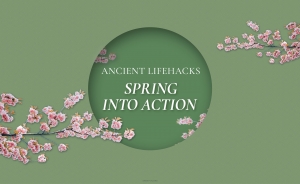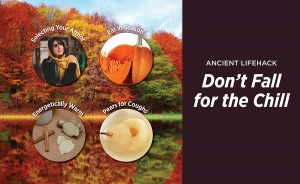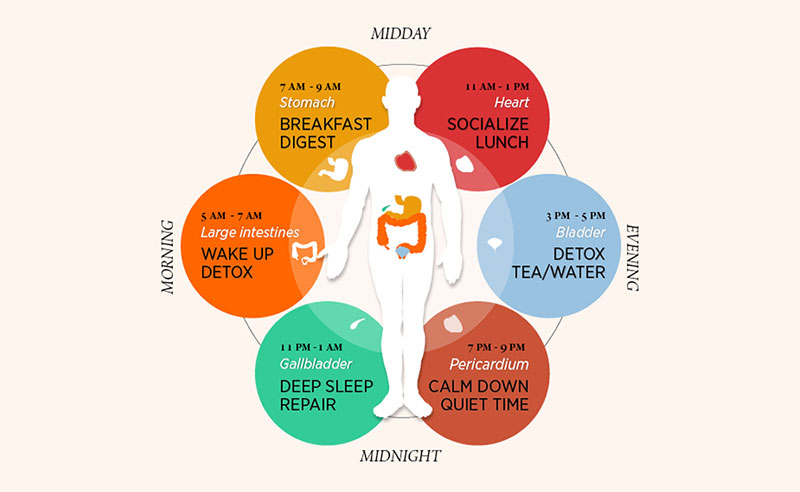
3 Self-Care Tips: Traditional Chinese Style
There's an old Taoist saying: “The human body is a microcosm of the universe.” Maybe there’s a deeper connection between our bodies and nature.
For example, the way rivers flow is very similar to how blood vessels transport blood through our bodies. When nothing interferes with the course of nature and the current flows nicely, everything along the river’s ecosystem is well; when we have good blood circulation and nothing is amiss, our bodies are in good health. But when a river is congested or a person's artery is clogged, both will quickly be out of sorts.
Understanding the relationship between our bodies and nature will not only help keep us healthier, but happier, too. Here are three tips—inspired by traditional Chinese methods—for how to take good care of your body.
Tip One: Follow the Traditional Chinese Medicine Clock
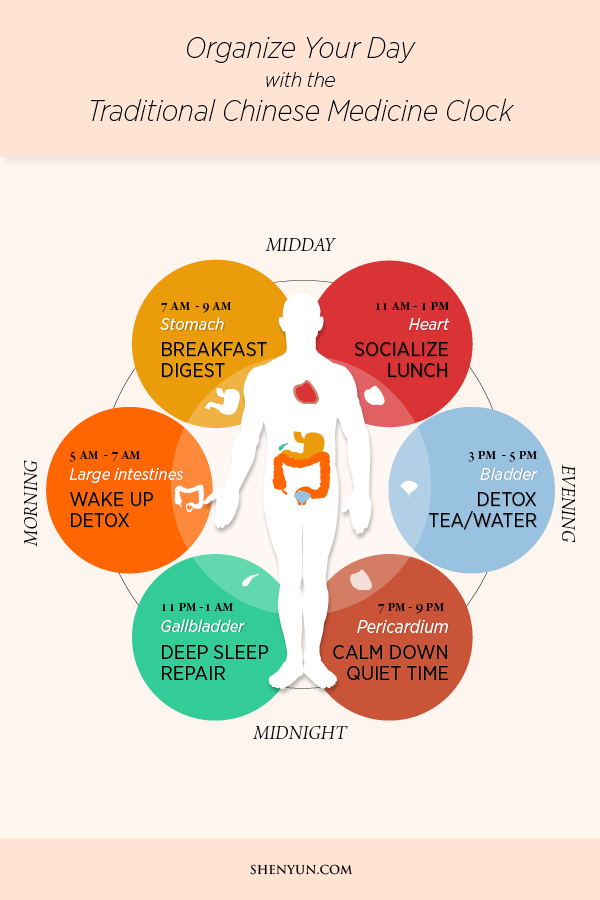
Traditional Chinese thought believes that our vital organs correspond to the Five Elements (metal, wood, water, fire, and earth), which also correlate to specific hours of the day. Here are some important time frames (known as shi-chen), and what you should be doing to comply with your bodily clock.
5:00 to 7:00am. Large intestines: Wake up and rid your body from waste accumulated overnight. In other words, use the bathroom and detox.
7:00 to 9:00am. Stomach: Eat a nice breakfast. This is prime time for digestion and absorption, to generate the energy that will power your body for the day’s activities.
11:00am to 1:00pm. Heart: Enjoy a nutritionally balanced lunch, and socialize with your friends. Your heart needs to be refueled with positive energy, and in more ways than one.
3:00 to 5:00pm. Bladder: Make sure to rehydrate. More water, more tea, more detox. (Ah! So afternoon tea is an even better idea than you thought.)
7:00 to 9:00pm. Pericardium (membrane enclosing the heart): Calm yourself down, both physically and mentally, and get ready for bed. Try some gentle stretching, meditation, or light reading.
11:00pm to 1:00 am. Gallbladder: You ought to be entering deep sleep by now, as your body needs to repair itself overnight in order to get ready for a brand-new day. It’s easy to lose track of time, get to bed too late, and not be able to get up the next morning. But try shifting your routine. Get to bed around 11 to catch repair time, and wake up around 7 for that first detox. Following a healthy and consistent sleep schedule will help you feel more energized and be more productive, too.
Tip 2: Eat Seasonally

The traditional Chinese belief is that since humans and nature coexist harmoniously, our bodies respond according to changes in the weather and environment. Eating locally and seasonally can keep us in tune with the world around us. This has long been common knowledge in the health community worldwide. Here are some good food choices for the four seasons.
Spring: In this time of birth and growth, choose healthy greens (asparagus and artichoke), leafy vegetables (arugula, spinach, and red leaf lettuce), fruits (strawberries, apricots, and sweet cherries), as well as dates, yam, mushrooms, and onions.
Summer: During the warmest months, drinking hot soup and eating pungent foods like ginger can actually help with maintaining sweating mechanisms. On the other hand, foods like watermelon, mung beans, cucumber, tomatoes, and wax gourd can help keep the body cool. Balancing between spicy foods and water-rich foods is the way to go!
Autumn: When things in nature begin to dry, you can imagine how your body is also changing and has new needs. Eat and drink things that will make up for or prevent loss of fluids. Try pineapples, bananas, pears, dairy products, soy milk, honey, sesame, and various nuts and seeds.
Winter: When everything is slowing down and some animals go into hibernation, it’s a good idea to eat protein-packed foods to build energy and conserve strength. Eating bitter foods can also promote healthy heart activity. Consider eggs, beef, celery, grapefruit, radish leaves, cloud ear fungus, ginseng, and tea.
Try to be more mindful of what your body needs during different times of year. Simple things like drinking a warm cup of lemon honey water on an autumn night or snacking on watery fruits in the summer can be very beneficial. Take some care to eat the right foods during the right seasons. Your body will thank you!
Tip 3: Meditate

Are you cooped up at home and feeling stressed? Are you feeling cabin fever? Meditation can help.
Wouldn’t it be nice if we could always pull ourselves out of bad moods? A great way to tend to yourself physically and mentally is to meditate. It’s nothing complicated. Just sit calmly for at least a few minutes while focusing and quieting your thoughts. Meditation helps eliminate accumulated stress and unwanted negativity. Here are some things to keep in mind:
1. Find a good environment: A quiet place with minimal distractions will help you calm down and focus better.
2. Group up: You don’t have to meditate by your lonesome. Ask some friends to join you to create a more positive environment and enhance your experience.
3. Have a regular routine: Consider making a schedule, because your body and mind will adapt and respond even better if you stick to a consistent meditation pattern.
For us dancers, like for many people out there, sometimes life can be pretty hectic. But dancing, rehearsing, studying, working, or doing anything in a distressed state will do more harm than good. I find that just 30 minutes of meditation every day really helps adjust my mind and body for more positivity and better productivity. So next time those negative thoughts come out, try eliminating them with some peaceful meditation.
These are a few ways that will help you take better care of your body. So when you’re feeling worn out, give yourself a boost by trying out these tips from traditional Chinese culture.
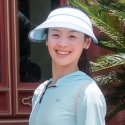
Sunni Zhou
Dancer
Dancer



